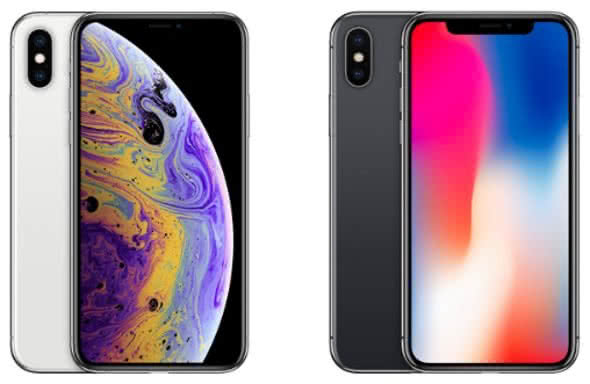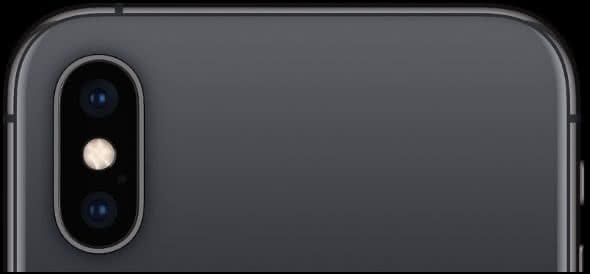iPhone Xs vs iPhone X – Which One Is Right For You?
![]() iPhone Xs and iPhone Xs Max – these are the direct successors of the iPhone X released in 2017. The suffix “s” already indicates what to expect from the newest iPhone generation. As a result, no big surprises in terms of design and appearance are to be expected, because Apple will continue to maintain the “s” series, as it has in the past. The focus is in particular on hardware innovations that, among other things, provide better performance. But do the upgrades justify the purchase of the new iPhone X or does the older iPhone X even offer a better price-performance ratio? In the following we will get to the bottom of this question for you.
iPhone Xs and iPhone Xs Max – these are the direct successors of the iPhone X released in 2017. The suffix “s” already indicates what to expect from the newest iPhone generation. As a result, no big surprises in terms of design and appearance are to be expected, because Apple will continue to maintain the “s” series, as it has in the past. The focus is in particular on hardware innovations that, among other things, provide better performance. But do the upgrades justify the purchase of the new iPhone X or does the older iPhone X even offer a better price-performance ratio? In the following we will get to the bottom of this question for you.
Design & Optics
As expected, the iPhone models do not differ from each other in terms of design and appearance. Both feature a full 5.8-inch display with the same gesture control. The glass back provides a stylish look and enables wireless charging via a Qi charger. In addition to the vertically arranged dual camera on the back, the new iPhone Xs also has the characteristic notch on the upper edge of the display, in which the front camera and sensors are installed. Nevertheless, there is a difference in the type of display glass used. According to Apple, the iPhone Xs has “the most stable glass ever used in a smartphone”. While the iPhone X is only available in the colors “Silver” and “Space Grey”, the iPhone Xs is also available in “Gold”.
https://www.youtube.com/watch?v=9m_K2Yg7wGQ
Display
There are no differences in the display either. Both the iPhone X and the iPhone Xs use a 5.8 inch OLED display with a resolution of 2436 x 1125 pixels at 458 ppi. Thus, both devices have the same ultra-sharp image resolution. Brightness, contrast ratio, color space and support for HDR content are identical for both iPhones. Here the iPhone X clearly moves at eye level with its successor.

Camera
For many users, an improved camera is often reason enough to switch to the latest iPhone. But with iPhone Xs (almost) everything stays the same compared to iPhone X. Both iPhones have a 12 megapixel dual camera with a wide-angle lens and a telephoto lens. The latter still enables a double optical zoom. Nevertheless, the iPhone Xs also has a few innovations that are not on board with the iPhone X. For example, the Xs has the so-called Smart HDR feature. When a photo is taken, several images with different exposure variants are created. With the help of the new A12 Bionic processor, the images are combined to form an optimal HDR photo. In this way, images are created with more detail in the dark and bright areas. There are also improvements in the portrait mode on iPhone Xs. The photo object is now even more precisely separated from the background. With the new depth control, the depth of field (bokeh effect) can also be individually adjusted using the slider – even for photos that have already been taken. By the way, the iPhone X’s 7-megapixel front camera also takes advantage of the new features.

Performance
The differences between the two flagship iPhones, on the other hand, are more apparent in the processor performance than in the snapshots. The iPhone Xs is equipped with the up to 15 percent faster and up to 50 percent more economical A12 bionic chip. The processor has a 7-nanometer architecture, which is reflected above all in lower energy consumption. The new graphics processor also works twice as fast as on the iPhone X, making complex game apps even faster and smoother. Thanks to the improved Neural Engine, which is responsible for artificial intelligence on the iPhone, iPhone Xs learns even faster than its predecessor. Object recognition, Face ID and AR content on the iPhone, for example, benefit from this.
More Features
One point that plays a not inconsiderable role when buying an iPhone is of course the battery life. According to Apple, the battery of the iPhone X lasts up to 30 minutes longer in everyday life than the energy storage device of the iPhone X. A real purchase argument for the Xs cannot be derived from the modest increase in usage time. Apart from the approximately same battery life, the iPhone Xs is even better protected against the penetration of liquids of all kinds thanks to IP 68 certification and also survives half-hour dives in a water depth of 2 meters. iPhone X, on the other hand, survives the 30 minutes “only” at a depth of 1 meter. A further feature that speaks for the iPhone Xs is the wider stereo playback for an even better sound experience.
Price
The iPhone X with 64 GB is available at Amazon (02.10.2018) for around $700, which is significantly cheaper than the new iPhone Xs with the same memory configuration in Apple’s online shop. The latter – like the iPhone X last year – has an impact starting at $999.
iPhone X vs. Xs – Overview
| iPhone Xs | iPhone X | |
| Display | 5,8 inch (OLED) | 5,8 inch (OLED) |
| Camera | 12 MP Dual-Camera | 12 MP Dual-Camera |
| Video | 4K with up to 60 fps, Full HD with up to 60 fps | 4K with up to 60 fps, Full HD with up to 60 fps |
| Processor | A12 Bionic | A11 Bionic |
| Internet-Usage | up to 12 hours | up to 12 hours |
| Audio/Video-Usage | up to 60 hours/14 hours | up to 60 hours/13 hours |
| Capacity | 64 GB, 256 GB, 512 GB | 64 GB, 256 GB |
| Price | starting at $999 | starting at $700 (Amazon) |
| Dimensions | 5.65 x 2.79 x 0.3 inches, 6.24 ounces | 5.65 x 2.79 x 0.3 inches, 6.20 ounces |